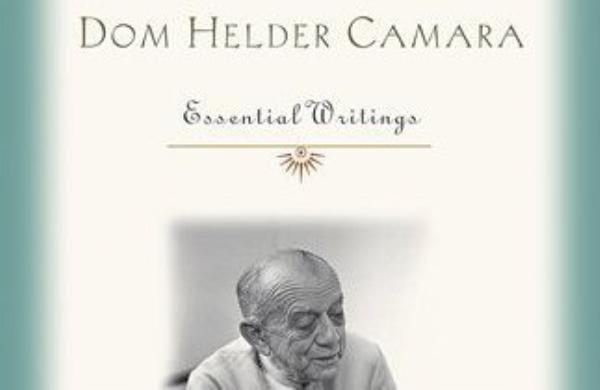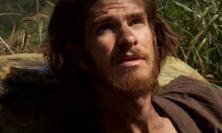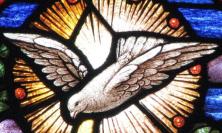Real ‘prophets’ don’t predict the future; they read the complex signs of the times that spell out how people, structures and systems generate poverty and lock out the poor, denying their status and dignity as brothers and sisters in Christ. The late Brazilian Archbishop of Recife, Dom Helder Camara (1909 – 1999) was one of the great prophets of the twentieth century: living through an era of military dictatorship, he championed the poor of Brazil and the rest of the world, and influenced the Second Vatican Council, subsequent gatherings of Latin American Bishops, and even the latest papal encyclical, Caritas in Veritate. More a pastor marked by a deep spirituality than an academic theologian, he left behind reflections, prayers and writings, chosen and collated by Francis McDonagh in Dom Helder Camara: Essential Writings. In true prophetic voice, Dom Helder’s words remain as relevant to today’s world as they were to the time in which they were written.
What is remarkable about this latest addition to the Modern Spiritual Masters series is just how contemporary the analysis of reality that it presents – especially of poverty – feels today, in a world of rapid transition in which globalisation, economic integration, and the gap between rich and poor have intensified with our communications. Despite the differences between the economic and social climates of the present day and the time of writing, Dom Helder’s insights into causes and structures can still speak to the financial crisis and challenge us to address the issue of basic justice for the poor on an international level.
Francis McDonagh presents a brilliantly compact account of Dom Helder’s life. He traces Dom Helder’s early ministry, which was devoted to improving Catholic education by preaching, lecturing and organising Catholic action. In setting the scene of Brazilian politics in the 1930s and 1940s, McDonagh gives a taste of the detailed history of the Church’s role in making tackling poverty a priority. Reading his introduction, ‘Dom Helder in context’, left me eager to read more of McDonagh’s knowledge of the Church in twentieth century Latin America – is there scope for a book on the history of our ‘preferential option for the poor’?
Here, however, the focus is on Dom Helder’s writings, in particular The Church and Colonialism (1969), The Desert is Fertile (1974) and Through the Gospel with Dom Helder Camara (1986), with carefully chosen selections from each annotated and organised into four key themes: ‘A Church of Service and Poverty’; ‘From Paternalism to Liberation’; ‘Walking with God’; and ‘The Unity of Creation’. Each brief passage is titled, allowing this book to be used as a meditation manual for anyone doubting the direction of the Church post-Vatican II. ‘A Church of Service and Poverty’ sets forth our course, clarifying our attitudes to poverty, reminding us that we need ‘deep Faith to keep pace with social involvement’ and insisting that ‘development cannot be implemented top down’, a theme that is emerging in political practice in the twenty-first century through an emphasis on participation. The Church ‘cannot sit on the sidelines of history’, nor in the struggle against poverty can we remain neutral: ‘If you are not on the side of the oppressed you are on the side of the oppressors’. At the same time, Dom Helder stresses the need to work for dialogue between rich and poor: an option for the poor ‘does not mean spurning the rich’; ‘the Church’s only engagement and solidarity should be with people’. He writes: ‘Don’t think that the government is going to come here and solve your problems for you. You’ve got to think for yourselves, act for yourselves; later perhaps, when the government sees you all united, it may come and help’.
Anyone struggling currently with the politics of international development will find much of use in the chapter, ‘From Paternalism to Liberation’, in which the issues – still unresolved forty years after Dom Helder addressed them – of food, security, protectionism and economic integration receive analysis and prompt a call for international action. Dom Helder focused on the need to ‘inspire and nurture minorities’, suggesting that what we actually lack ‘is a way of creating links between the minorities, of uniting them in common aims’. He sets out his vision: ‘I am thinking of a population in control of power and the sharing of wealth and culture. I am thinking of a future when people will become agents of their social progress.’ He calls for humanity to be constantly more responsible on every plane – local, regional, national, continental, worldwide: ‘I believe that mankind can arrive at a rational and functional and planned society and in international affairs, a self determination of the nations and a balanced integration’. Dom Helder wrote this in 1970 – shouldn’t we now be working out the details?
‘Walking with God’ takes us into the prayer life of Dom Helder, in particular to his Vigil: he would get up in the night to recall the faces and conversations of the poor people he had met during the day. The luminous passages on prayer are characterised by his constant awareness of the presence of his brothers and sisters in Christ. These passages on humility and weakness (‘I am a qualified Ambassador of human weakness’) are essential spiritual reading, passages to sit with, to reflect and meditate on because they have the capacity to change us. And for anyone imagining that Dom Helder’s approach is pietistic or soft, the horror stories of pigs in favelas eating babies left alone, or of a thief breaking into a Church to steal the ciborium and leaving hosts of the Blessed Sacrament scattered in the mud, are a rude awakening. Poverty and the real presence of Christ are found uncomfortably together: ‘We must find a way not only of distributing the bread but multiplying it’. Finally, ‘The Unity of Creation’ focuses on Dom Helder’s respect for nature: he was writing in a nuclear age and prior to the recognition of global warming, but his fundamental call to us to remain ‘co-creators’ and not to become destroyers is continually relevant.
Dom Helder Camara: Essential Writings is a book to keep close by, to read regularly and prayerfully, clarifying the signs of our times and helping us to remain faithful. In the meantime, Francis McDonagh could perhaps be invited to share more of his experience and understanding of the Latin American poor and the Church.
The reviewer, John Battle MP, is Member of Parliament for Leeds West.






